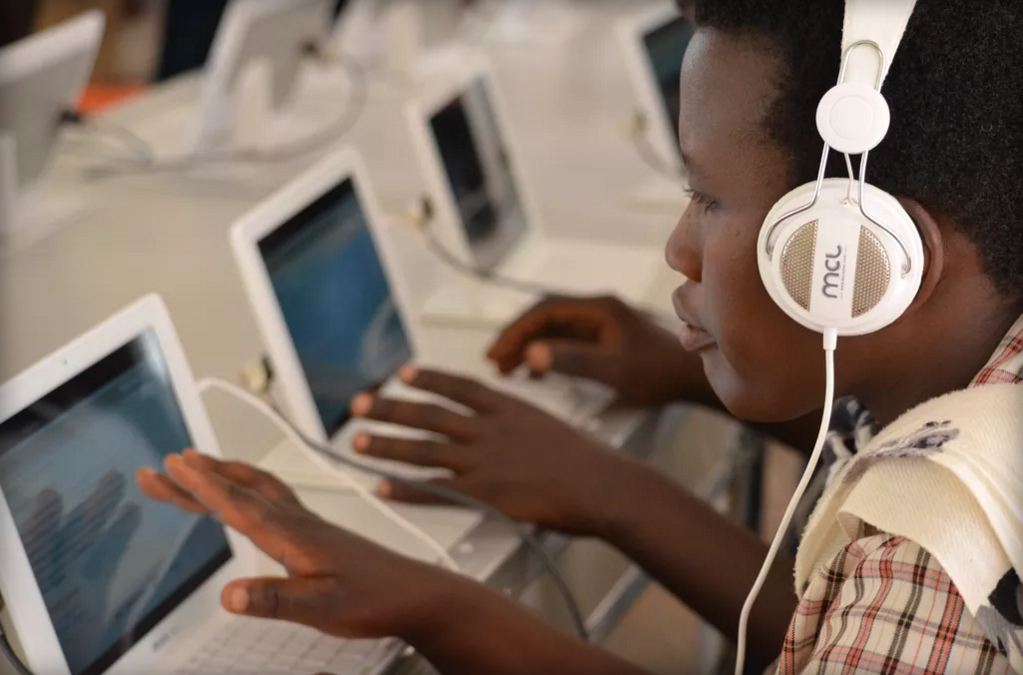Ioannis Papachristodoulou is enthusiastically bracing for failure. The UNHCR Innovation Fellow is currently testing his prototype for a tablet-based project that facilitates language learning for refugees. He knows the results may not be satisfying. “If there’s one thing I’ve learned during my training with UNHCR Innovation, it’s that you must be ready to fail,” he says.
“You must expect that things might not work initially, that you might have to drop what you’ve done and redo it again, otherwise you will continue with something that will not work.”
Failing, he explains, is a normal part of the process that leads to innovation. In fact, his project has already been modified several times since its inception, when it was just a concept he submitted to UNHCR Ideas – UNHCR’s idea management platform. Participants had been asked to suggest ways to help refugees overcome language barriers. This immediately clicked with Papachristodoulou. A senior IT assistant with UNHCR in Athens, Greece, he had visited several reception centres around the country and noticed language was a major challenge for refugees who didn’t speak Greek or English. Adults were having difficulty accessing services, and children hard a hard time adapting to the local schooling system. All of them wanted to learn a European language, and suggested they could try teaching themselves if provided with didactic resources.
Papachristodoulou thought language students could use tablets preloaded with educational materials such as language-learning applications, PDFs, videos and Skype. He shared his plan on the UNHCR Ideas platform, and soon received constructive feedback from users. This helped him refine the concept; instead of providing one tablet per student, he would create learning centres where families could spend a few hours learning together. And the tablets would have to be powered by solar energy so as to function in places that lack electricity.
Papachristodoulou’s idea ended up winning the challenge, which led to an offer to become an Innovation Fellow to implement his idea. In addition to receiving training and support from the Innovation department, he worked closely with UNHCR’s Education Unit to make the project viable.
“The most important thing is not just to use a concept based on technology, but integrate it within a proper pedagogical context,” he says.
That’s why a facilitator will be present at each learning centre to make sure the learning process is well structured. The program is also designed to be adapted to the local context, wherever it may be implemented, in order to facilitate scalability.
A prototype is currently being tested with a group of young learners. The trial will notably reveal how flexible the tablet can be for students with vastly different abilities and levels. Among the refugee population are children who have never been to school and don’t know how to read. Others have attention deficits due to the lasting effects of trauma they may have experienced at home or on their way to Greece, which makes it difficult for them to concentrate and learn in traditional classroom settings. But research suggests tablets could be versatile enough to accommodate a variety of needs; some language applications are designed for learners who can’t read, relying on icons and images instead of words. The tablets’ interactive features should also help keep children engaged and interested. Students can even choose which language they wish to learn based on their preference or the country their family wishes to settle in.
Test results will determine whether the current prototype is ready to be scaled, or whether further adjustments are needed. Once a final concept has been designed, the program will be set up in five different centres in Greece, with a potential to expand to countless other UNHCR operations.
Papachristodoulou credits the Innovation program for giving him support to bring his project to life, and teaching him new methods and tools for idea generation. One of his favourite parts of the training, however, was being to meet with other Innovation Fellows and get feedback on his project. “There is this continuous flow and exchange of information, and that’s the most important thing in order to move forward with your ideas. You may see or hear something you’ve never heard before, and you can take it into consideration,” he explains. What he’s learned about innovation will likely stay with him for years to come.
“If you see that something is not working as it should, you must be willing to take the risk and think of how it could be done better. This is how we can provide better assistance to refugees.”
Photo credit: Bibliothèques Sans Frontières

